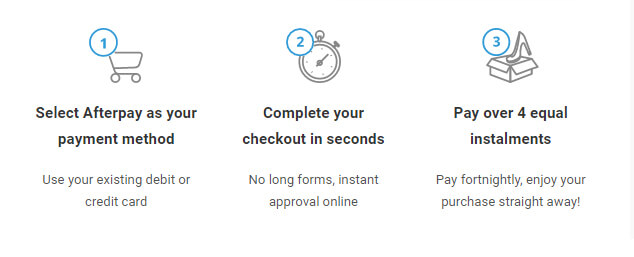Tips on Adopting Adult or Older Dogs: Dog Training - Interview with Gaz Jackson

Written by Colin Seal
Properly introducing a new dog into your home is as important as socialising that same dog into the household and even outside the family circle - this can be more challenging than socialising a puppy.
So, today, I will share tips on adopting older dogs and what to do when you bring them into your home - these tips come from a professional dog trainer.
How Do I Introduce an Older Rescue Dog to my Home Properly?
Interview with Gaz Jackson, The Dog Trainer
Tips on Introducing a New (Older) Dog Into Your Home (Click each item to learn more):
 If you are one of the people who love older dogs and is considering adopting one, I bet you already understand that senior dogs may be more challenging to train and socialise, in terms of behaviours, compared to training and socialising a puppy.
If you are one of the people who love older dogs and is considering adopting one, I bet you already understand that senior dogs may be more challenging to train and socialise, in terms of behaviours, compared to training and socialising a puppy.
This may be because your new dog (especially an older dog from an animal welfare group) might have been extremely unsocialised and mistreated by the past owners.
Thus, there is a high chance that your new (older) dog becomes super dependent on you and highly protective of you.
So, it is important to learn how to properly settle your new dog, especially if it is an older rescue dog, into your home - without teaching the dog to become dependent on you… this is important to prevent dog separation anxiety and other behavioural problems that come with it.
Do Not Let Your New Dog Sleep in the Bedroom Especially When He First Arrives Into Your Home - This Encourages Dependency
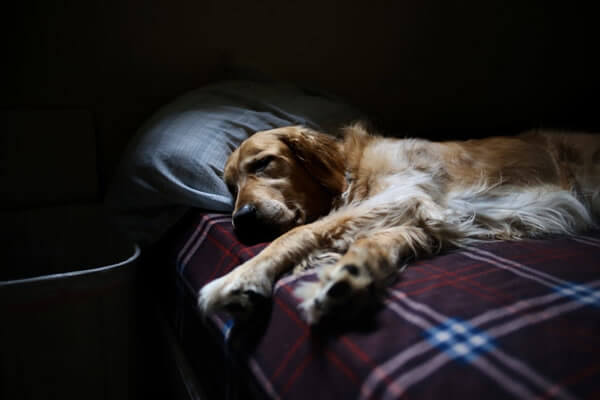 As mentioned, dog dependency gives birth to loads of dog behavioural problems such as separation anxiety, nuisance barking, chewing, aggression, and the escaping habit.
As mentioned, dog dependency gives birth to loads of dog behavioural problems such as separation anxiety, nuisance barking, chewing, aggression, and the escaping habit.
If you let the dog sleep in the bedroom with you, it creates a disruption in the rank structure as your dog perceives it - especially if you have children and other dogs.
Your dog thinks that his rank in the pack is higher as he gets to spend more time with you and is allowed to sleep in the bedroom.
When your dog develops this perception, there’s a high chance that he will become arrogant to your children and his sibling dogs by ignoring them - often not participating with them.
Worse, your dog may become aggressive to your kids and other dogs in the household by displaying his dominance.
So, the best thing to do when a new dog arrives in your home is to dedicate a specific space for him such as a crate, a dog bed or a kennel - put in some used and sweaty shirts of the family members as well, so the dog can start recognising their scents and become comfortable.
Allow Your New Dog to Get Used Spending Time Away from You
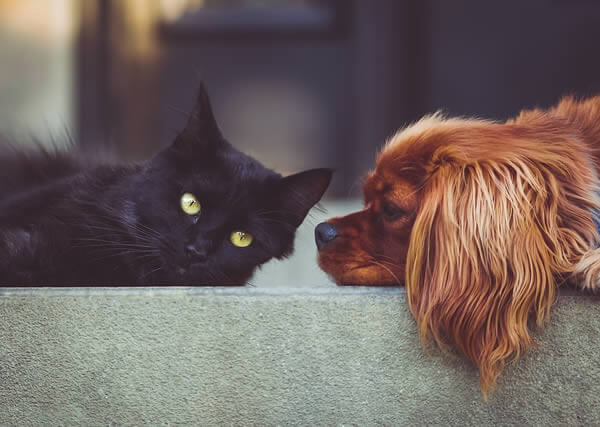 This is one of the best practices that teach your dog to become independent - when you let your dog get used to spending time away from you, he will more likely adapt faster to your household and develop his confidence.
This is one of the best practices that teach your dog to become independent - when you let your dog get used to spending time away from you, he will more likely adapt faster to your household and develop his confidence.
Allow your dog to stay in his crate or kennel, in the garage, in the play area, or anywhere in the house that is safe for your dog to stay.
Giving him some time to spend away from you also lets him bond with other family members and his sibling dogs or cats (if there’s any).
Give Your Dog Time to be in the Yard for 2 to 3 Hours
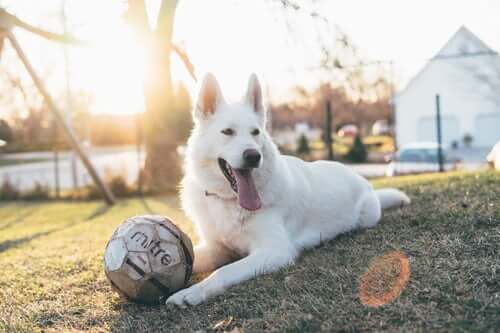 This is also one of the best ways to let your dog nurture his independence and confidence in his new environment - your home.
This is also one of the best ways to let your dog nurture his independence and confidence in his new environment - your home.
Dogs who spend some time away from their owners and into the yard are less likely to develop separation anxiety and dog dependency.
Allow your dog to do his own thing in the yard - potty, observe people and other animals, play. In case you do not have a fence or if the dog you rescued is an escape artist, a dog containment system will help.
Get Your Dog Some Entertainment Toys and Treats
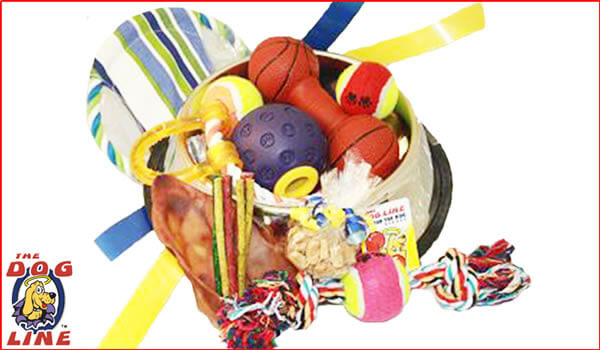 As mentioned, allowing your dog to spend time away from you and letting him do his business in the yard for a few hours will build up his independence and confidence.
As mentioned, allowing your dog to spend time away from you and letting him do his business in the yard for a few hours will build up his independence and confidence.
However, some dogs who you may have rescued or any older dog that comes into your home may already have separation anxiety, aggression and may more likely indulge in nuisance barking.
So, providing interactive dog toys and yummy dog food treats will help in fighting these dog behaviour problems as you train your dog to quit chewing things off in your house… or stop engaging in unnecessary barking episodes… and even distract him from escaping your property.
These dog toys and dog snacks will go really well with a good anti bark collar and reliable invisible dog fence.
 The Dogline
The Dogline














